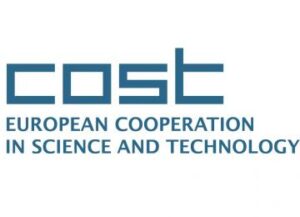Research Directions:
Biomarkers and bioassays
Description:
 The main objective of this COST Action is to improve the knowledge on welfare of fish and formulate a set of guidelines embodying a common and scientifically sound understanding of the concept of welfare in farmed fish and to construct a range of targeted operational welfare indicator protocols to be used in the industry. The Action will focus principally upon the five main farmed species in Europe, namely salmon, rainbow trout, sea bass, sea bream and carp. The outcomes of the Action are also expected to have direct implications for welfare concepts in the use of experimental animals, keeping of ornamental fish, and for wild fisheries. Secondary objectives 1. Evaluation of existing knowledge generated from fundamental fish biology research for its relevance from a welfare and comparative species perspective (WG1). 2. The use of expertise from within the consortium, to define techniques and systems for validating specific aspects of welfare and operational welfare indicators using a range of physiological, behavioural and motivational research strategies.(WG1). 3. Identification of gaps in knowledge and changing research focus to ensure that studies do not concentrate only upon avoidance of negative welfare but also involve research describing positive welfare indicators and targeting physiological balance and wellbeing of the animal (WG1). 4. Description and definition of nutritional, health, behavioral and environmental parameters from a welfare perspective (WG2). 5. Description and definition of management protocols that promote good welfare at a farm level (WG2). 6. Use of expertise from within the consortium, to create a series of Operational Welfare Indicator (OWI) matrices for the five main farmed species of European aquaculture based on existing and new knowledge (WG2). 7. Identification of experimental methods and existing but underutilised data sets that can be used for evaluating/simulating management systems, including systems associated with different species, farming systems, life stages and environmental conditions.(WG3). 8. Provision of information to inform the fish welfare debate and help develop legislation and legislative processes related to fish welfare, through meetings, reports, publications and co-organisation of international conferences and workshops (WG3). 9. Description of the present state of welfare-directed activity of participating countries and formulation of country specific advice/activities (WG3). 10. Formulation of activities/advice as to how best to promote the transition from systems based upon purely technical solutions to systems based upon realising the biological production potential of the animal (WG3). 11. Facilitation of communication between ongoing initiatives at a national and international level with particular emphasis upon the promotion of links with relevant activities in terrestrial farmed animals and activities aimed at understanding the consumer impact on future animal production. 12. Facilitation of knowledge transfer and training through short scientific missions between established and new research groups. Interaction along North-South and West-East geographic axes will be encouraged.
The main objective of this COST Action is to improve the knowledge on welfare of fish and formulate a set of guidelines embodying a common and scientifically sound understanding of the concept of welfare in farmed fish and to construct a range of targeted operational welfare indicator protocols to be used in the industry. The Action will focus principally upon the five main farmed species in Europe, namely salmon, rainbow trout, sea bass, sea bream and carp. The outcomes of the Action are also expected to have direct implications for welfare concepts in the use of experimental animals, keeping of ornamental fish, and for wild fisheries. Secondary objectives 1. Evaluation of existing knowledge generated from fundamental fish biology research for its relevance from a welfare and comparative species perspective (WG1). 2. The use of expertise from within the consortium, to define techniques and systems for validating specific aspects of welfare and operational welfare indicators using a range of physiological, behavioural and motivational research strategies.(WG1). 3. Identification of gaps in knowledge and changing research focus to ensure that studies do not concentrate only upon avoidance of negative welfare but also involve research describing positive welfare indicators and targeting physiological balance and wellbeing of the animal (WG1). 4. Description and definition of nutritional, health, behavioral and environmental parameters from a welfare perspective (WG2). 5. Description and definition of management protocols that promote good welfare at a farm level (WG2). 6. Use of expertise from within the consortium, to create a series of Operational Welfare Indicator (OWI) matrices for the five main farmed species of European aquaculture based on existing and new knowledge (WG2). 7. Identification of experimental methods and existing but underutilised data sets that can be used for evaluating/simulating management systems, including systems associated with different species, farming systems, life stages and environmental conditions.(WG3). 8. Provision of information to inform the fish welfare debate and help develop legislation and legislative processes related to fish welfare, through meetings, reports, publications and co-organisation of international conferences and workshops (WG3). 9. Description of the present state of welfare-directed activity of participating countries and formulation of country specific advice/activities (WG3). 10. Formulation of activities/advice as to how best to promote the transition from systems based upon purely technical solutions to systems based upon realising the biological production potential of the animal (WG3). 11. Facilitation of communication between ongoing initiatives at a national and international level with particular emphasis upon the promotion of links with relevant activities in terrestrial farmed animals and activities aimed at understanding the consumer impact on future animal production. 12. Facilitation of knowledge transfer and training through short scientific missions between established and new research groups. Interaction along North-South and West-East geographic axes will be encouraged.

